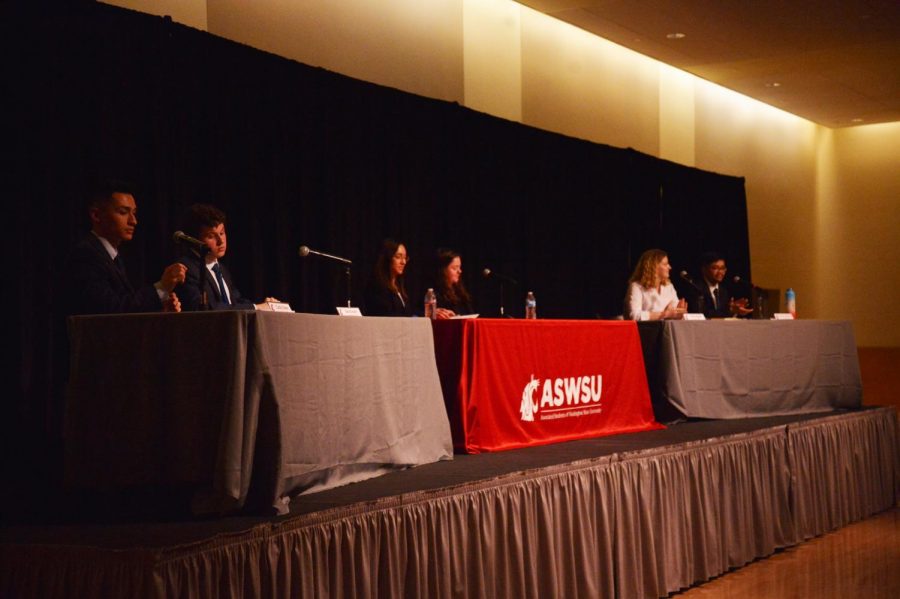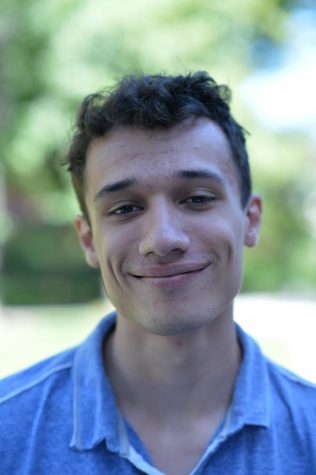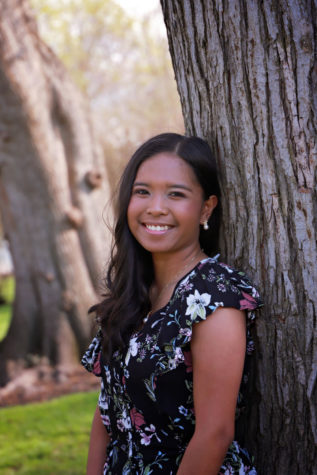ASWSU candidates: multicultural debate
Waddill and Cohen spoke about food insecurity, mental health, leadership, coronavirus risk
From left to right: Curtis Cohen, Sean Doster, the two moderators, Kylie Waddill and Donavyn Velez-Fucal debate multicultural issues Thursday in the CUB.
March 6, 2020
Students from multicultural organizations on campus asked the ASWSU presidential candidates questions about leading underrepresented groups in the first presidential debate on Thursday.
Kylie Waddill and Donavyn Velez-Fucal debated against Curtis Cohen and Sean Doster. Both teams answered questions revolving around food insecurity, mental health and leadership.
Although the debate was had multicultural in its title, the moderators asked questions covering a broader variety of topics. This was addressed by the first audience member who asked a question.
“There was only one question regarding multicultural groups on campus,” Dylan Good, senior political science major, said.
Many audience members then started to ask questions focused on multicultural groups. Good asked how underrepresented groups on campus can get the representation they deserve.
Cohen said his executive staff would hire people coming from diverse backgrounds and be inclusive toward all groups on campus.
Both Cohen and Doster are in residential Greek life. Doster said they want to make sure their executive staff takes a different approach than the current one by hiring more non-Greeks.
“Two Greeks on executive cabinet is enough,” Doster said. “Which means we need to hire people outside the Greek community.”
Coming from a diverse community in Tacoma, Waddill said she plans to use her relationship-focused style of leadership to connect with underrepresented communities. She said this will help give those communities adequate voice.
“Though their voice shouldn’t be through me, it should be through themselves,” Waddill said. “That’s where my servant leadership comes into play where my job is to serve them.”
She said the connections she has made through her involvement with ASWSU Give and the College Hill Association has connected her to diverse groups of people who are not part of Greek life. The sense of community in Greek life is strong, she said, and she wants to see this translated in other groups on campus.
Good said both teams gave good answers to the debate and they both performed well with the questions they were given.
“I know for sure who I’m going to vote for now,” he said.
TK Saffold, an audience member and Spokane Community College student, asked both teams questions about the candidates’ connection to diverse populations as well as raising mental health awareness around campus.
Saffold said although the candidates have good intentions, he felt like they did a lot of talking without actual plans.
“I feel like a lot of it was dodging questions,” Saffold said.
Cohen said his approach to mental health awareness on campus would start at organizational levels. He and Doster plan to implement training organizational leaders to detect students who are struggling. They will also implement training on how to be an effective listener.
“We are an organization based community here at WSU,” Cohen said. “It’s really about not trying to change the world … but something that is feasible and actually realistic.”
Another idea Cohen and Doster have is to incorporate 7 Cups at WSU, a website that provides free online support and therapy to people experiencing emotional distress. Doster said the website allows people to filter and choose listeners who are best suited to what they are going through.
Waddill said addressing mental health means going back to the basics of taking care of one’s self. She and Velez-Fucal plan to do this by organizing a series of workshops focusing on well-being and mental health.
Although there are many mental health campaigns on campus, she said students need to be empowered and feel like they are worthy. This includes helping students find the right resources.
“It’s not just one student,” she said. “It’s all of us.”
Another student asked the candidates how they will address discrimination towards Asian students at WSU due to the coronavirus outbreak.
Cohen said people are buying into the fear surrounding the virus because of the amount of misinformation that is being spread. The job of the student government is to respond in a timely manner refuting false claims, he said.
Waddill said it is important to be an ally first in addressing this issue. She said the International Student Coalition has developed a portal where students can post comments about negative circumstances they experience. She encouraged the audience to use the portal so the university can track trends concerning discrimination issues due to the coronavirus.
The next debate will be 6 p.m. Sunday in the CUB Senior Ballroom.











